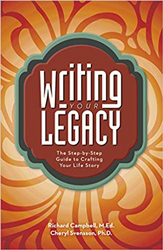The Helping Older People Engage (HOPE) Project: Study Summary and Results
Why we conducted the study: The many negative outcomes associated with loneliness in older people rendered loneliness itself a new public health target. Evidence-based strategies to reduce loneliness in later life are needed because loneliness impacts all domains of health, functioning, and quality of life. Volunteering is a promising strategy, as a large literature of observational studies documents associations between volunteering and better health and well-being. However, relatively few studies have used randomized controlled trials (RCTs) to examine benefits of volunteering, and none have examined loneliness. The primary objective of this study was to examine the social-emotional benefits of a social volunteering program for lonely older adults.
What participants in the study did: We completed eligibility baseline interviews with 369 adults aged 60 and older. We randomly assigned 291 of these individuals who reported loneliness to 12 months of either AmeriCorps Seniors volunteering or an active control (self-guided life review). Co-primary outcomes were assessed via self-report—loneliness (UCLA Loneliness Scale) at regular intervals (3, 6, 9, 12 months) and quality of life (WHOQOL-Bref) at 12 months. Participants also provided information on number of hours volunteered and the number of life review writing assignments completed (i.e., “dose” of the interventions received).


What we found: Few participants (i.e., 9%) completed the minimum ‘dose’ of volunteering expected to confer benefit (i.e., at least 4 hours per month) and 30% did not begin any volunteer service. ‘Dose’ for the Life Review condition was comparable. However, participants were willing and able to complete follow-up research assessments, regardless of whether they completed study interventions, allowing us to test our hypotheses with the required sample size. Our first aim was to examine whether volunteering was associated with greater reductions in loneliness over time compared to the active control. We found that both groups demonstrated reductions in loneliness over time, but not below clinical levels and with no difference between the two groups. Our second aim was to examine whether volunteering was associated with greater improvements in quality of life compared to active control. As with loneliness, we found improvements in quality of life for both groups, with no difference between conditions. Given that few participants received a ‘full dose’ of study interventions, ‘dose’ analyses are planned to examine whether those who completed interventions demonstrated better outcomes.
Implications: Results indicate that older adults with clinically significant loneliness are unlikely to complete one year of either AmeriCorps Seniors volunteering (a social activity) or self-guided life review (a solitary activity), even when provided via a clinical trial with substantial supports. This suggests that simple referrals to community programs to mitigate loneliness are unlikely to be effective. However, results also suggest that close monitoring linked to a purpose (i.e., research outcomes) could be a useful intervention, though not strong enough to reduce loneliness below clinical levels. It is possible that population health evaluation and collection of metrics for loneliness could serve a similar function to research assessments and could be a relatively low-cost approach to mitigating loneliness in the absence of strong evidence to support one intervention approach over another.
We will update this website with additional findings as they become available. You can read more about the study design and rationale in the following paper (available online for free).
This study was supported by a grant from the National Institute on Aging (R01AG05445). For more information, please contact the study PI, Dr. Kim Van Orden at (585) 273-1811 or email: HOPE@urmc.rochester.edu.